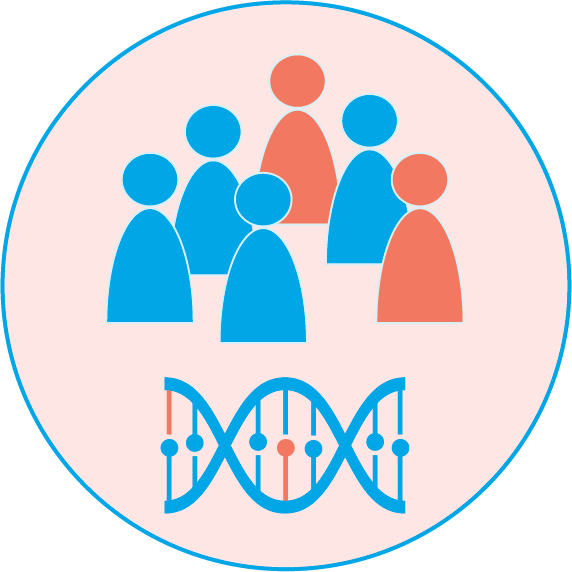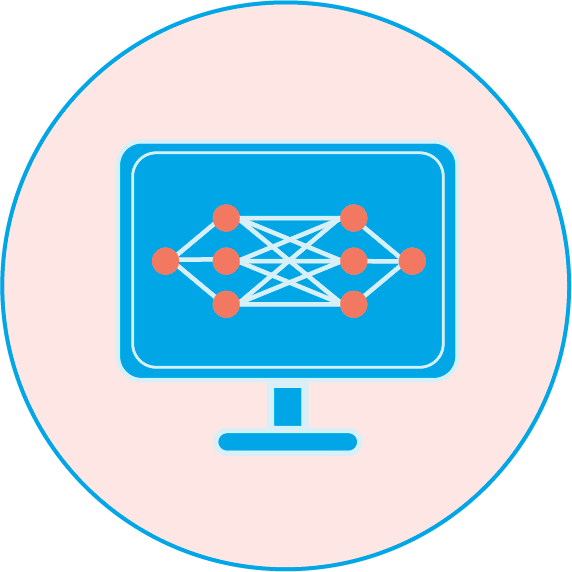The 2025 edition of the [BC]² Basel Computational Biology Conference is themed "Bioinformatics meets AI: shaping the future of data-driven biology", reflecting the conference’s focus on the transformative impact of artificial intelligence in bioinformatics. In line with this focus, the scientific committee is developing an engaging program around six key topics (listed below) with sessions based on selected abstracts.
Conference highlights include inspiring keynote lectures by international experts, scientific presentations selected from submitted abstracts, hands-on tutorials, workshops, interactive poster sessions, and numerous networking activities. A dedicated session will explore the transition from academia to industry, focusing on transforming AI-driven bioinformatics projects into successful start-ups
[BC]² 2025 will be held exclusively as an in-person conference in Basel. Pre-conference workshops and tutorials, as well as all main conference activities will take place on-site, fostering dynamic interactions, networking opportunities, and hands-on learning experiences that are best delivered face-to-face.
Download the programme overview as a pdf


 Session description: This session will focus on the application of bioinformatics to cancer research, highlighting methods for analyzing cancer genomics, tumor evolution, and molecular mechanisms of cancer progression. It will cover cutting-edge computational approaches for analyzing cancer omics data, identifying biomarkers, or developing predictive models for personalized therapies. The session will also explore advancements in precision oncology, immuno-oncology, and integrating multi-omics data to improve cancer diagnosis, treatment, and monitoring.
Session description: This session will focus on the application of bioinformatics to cancer research, highlighting methods for analyzing cancer genomics, tumor evolution, and molecular mechanisms of cancer progression. It will cover cutting-edge computational approaches for analyzing cancer omics data, identifying biomarkers, or developing predictive models for personalized therapies. The session will also explore advancements in precision oncology, immuno-oncology, and integrating multi-omics data to improve cancer diagnosis, treatment, and monitoring. Session description: the increasing availability of sequencing and diagnostics, as well as the recent COVID-19 pandemic, have underscored the critical importance of pathogen data management and analysis, and epidemiological surveillance. Additionally, understanding host-pathogen interactions, epidemiological dynamics, and patient responses to infectious diseases remain crucial areas of research. This session will explore how bioinformatics and computational approaches are essential to advancing our understanding of infectious diseases by integrating genomic, epidemiological, and clinical data. These approaches also play an important role in addressing critical public health concerns by contributing to the prevention, diagnosis, and treatment of diseases in both human and animal populations. Key topics will include the application of artificial intelligence in tackling infectious diseases from both the pathogen and host perspectives.
Session description: the increasing availability of sequencing and diagnostics, as well as the recent COVID-19 pandemic, have underscored the critical importance of pathogen data management and analysis, and epidemiological surveillance. Additionally, understanding host-pathogen interactions, epidemiological dynamics, and patient responses to infectious diseases remain crucial areas of research. This session will explore how bioinformatics and computational approaches are essential to advancing our understanding of infectious diseases by integrating genomic, epidemiological, and clinical data. These approaches also play an important role in addressing critical public health concerns by contributing to the prevention, diagnosis, and treatment of diseases in both human and animal populations. Key topics will include the application of artificial intelligence in tackling infectious diseases from both the pathogen and host perspectives. Session description: clinical data science is revolutionizing healthcare by harnessing the power of big data, machine learning and advanced analytics to improve patient outcomes and treatment strategies. This session will explore how data-driven approaches are transforming clinical research and practice, from new target identification to patients routine management. By highlighting innovations in data processing, AI applications in diagnostics, and real-time decision support, this session will showcase how clinical data science is reshaping the future of healthcare.
Session description: clinical data science is revolutionizing healthcare by harnessing the power of big data, machine learning and advanced analytics to improve patient outcomes and treatment strategies. This session will explore how data-driven approaches are transforming clinical research and practice, from new target identification to patients routine management. By highlighting innovations in data processing, AI applications in diagnostics, and real-time decision support, this session will showcase how clinical data science is reshaping the future of healthcare. Session description: this session will explore cutting-edge research and methodologies in single-cell omics, with also a focus on spatial profiling technologies, including sequencing- and imaging-based spatial transcriptomics and multiplexed imaging. Emphasizing the role of emergent AI and machine learning methodologies, the session will showcase innovative computational methods and frameworks that are transforming the analysis and interpretation of high-dimensional spatial and single-cell data. Discussions will cover the development of novel algorithms, their interpretation and rigorous benchmarking, and their application to a range of tasks, such as annotation of cell types, understanding of tissue organization, inference of cell-cell communication, or prediction of perturbations. Altogether the session aims at highlighting the potential of single-cell and spatial technologies for new biological discoveries.
Session description: this session will explore cutting-edge research and methodologies in single-cell omics, with also a focus on spatial profiling technologies, including sequencing- and imaging-based spatial transcriptomics and multiplexed imaging. Emphasizing the role of emergent AI and machine learning methodologies, the session will showcase innovative computational methods and frameworks that are transforming the analysis and interpretation of high-dimensional spatial and single-cell data. Discussions will cover the development of novel algorithms, their interpretation and rigorous benchmarking, and their application to a range of tasks, such as annotation of cell types, understanding of tissue organization, inference of cell-cell communication, or prediction of perturbations. Altogether the session aims at highlighting the potential of single-cell and spatial technologies for new biological discoveries. Session description: advances in sequencing technologies, bioinformatics tools, and data integration methods have revolutionized our ability to investigate evolutionary processes and environmental dynamics. This session will explore cutting-edge approaches that combine computational and experimental techniques to address key questions in evolution and environmental science. From studying adaptive evolution to using environmental DNA (eDNA) for tracking biodiversity, this session will highlight novel methodologies that deepen our understanding of interactions between organisms and their environments. Topics may include the investigation of microbiota data, the integration of multi-omics data to explore species' responses to environmental change, and the application of machine learning in environmental bioinformatics and conservation efforts. Another topic of interest is high-throughput sequencing for reconstructing evolutionary histories and establishing reference genomes across diverse species to uncover the genetic basis of biodiversity. By focusing on innovations in both theoretical and applied research, this session will offer a comprehensive view of how bioinformatics is advancing our understanding of evolution and environmental dynamics
Session description: advances in sequencing technologies, bioinformatics tools, and data integration methods have revolutionized our ability to investigate evolutionary processes and environmental dynamics. This session will explore cutting-edge approaches that combine computational and experimental techniques to address key questions in evolution and environmental science. From studying adaptive evolution to using environmental DNA (eDNA) for tracking biodiversity, this session will highlight novel methodologies that deepen our understanding of interactions between organisms and their environments. Topics may include the investigation of microbiota data, the integration of multi-omics data to explore species' responses to environmental change, and the application of machine learning in environmental bioinformatics and conservation efforts. Another topic of interest is high-throughput sequencing for reconstructing evolutionary histories and establishing reference genomes across diverse species to uncover the genetic basis of biodiversity. By focusing on innovations in both theoretical and applied research, this session will offer a comprehensive view of how bioinformatics is advancing our understanding of evolution and environmental dynamics Session description: advances in computational protein design and molecular modelling have opened new frontiers in understanding and engineering complex biological systems. This session will explore how cutting-edge techniques in protein structure prediction, protein dynamics, and artificial intelligence are applied for functional characterization, integrative modelling and design of novel proteins. From creating de novo proteins with tailored functions to simulating dynamic interactions in macromolecular complexes, this session will showcase breakthroughs transforming basic research and therapeutic development. Participants will gain insights into how these approaches accelerate discoveries in areas such as synthetic biology, molecular machinery engineering, and drug design.
Session description: advances in computational protein design and molecular modelling have opened new frontiers in understanding and engineering complex biological systems. This session will explore how cutting-edge techniques in protein structure prediction, protein dynamics, and artificial intelligence are applied for functional characterization, integrative modelling and design of novel proteins. From creating de novo proteins with tailored functions to simulating dynamic interactions in macromolecular complexes, this session will showcase breakthroughs transforming basic research and therapeutic development. Participants will gain insights into how these approaches accelerate discoveries in areas such as synthetic biology, molecular machinery engineering, and drug design.